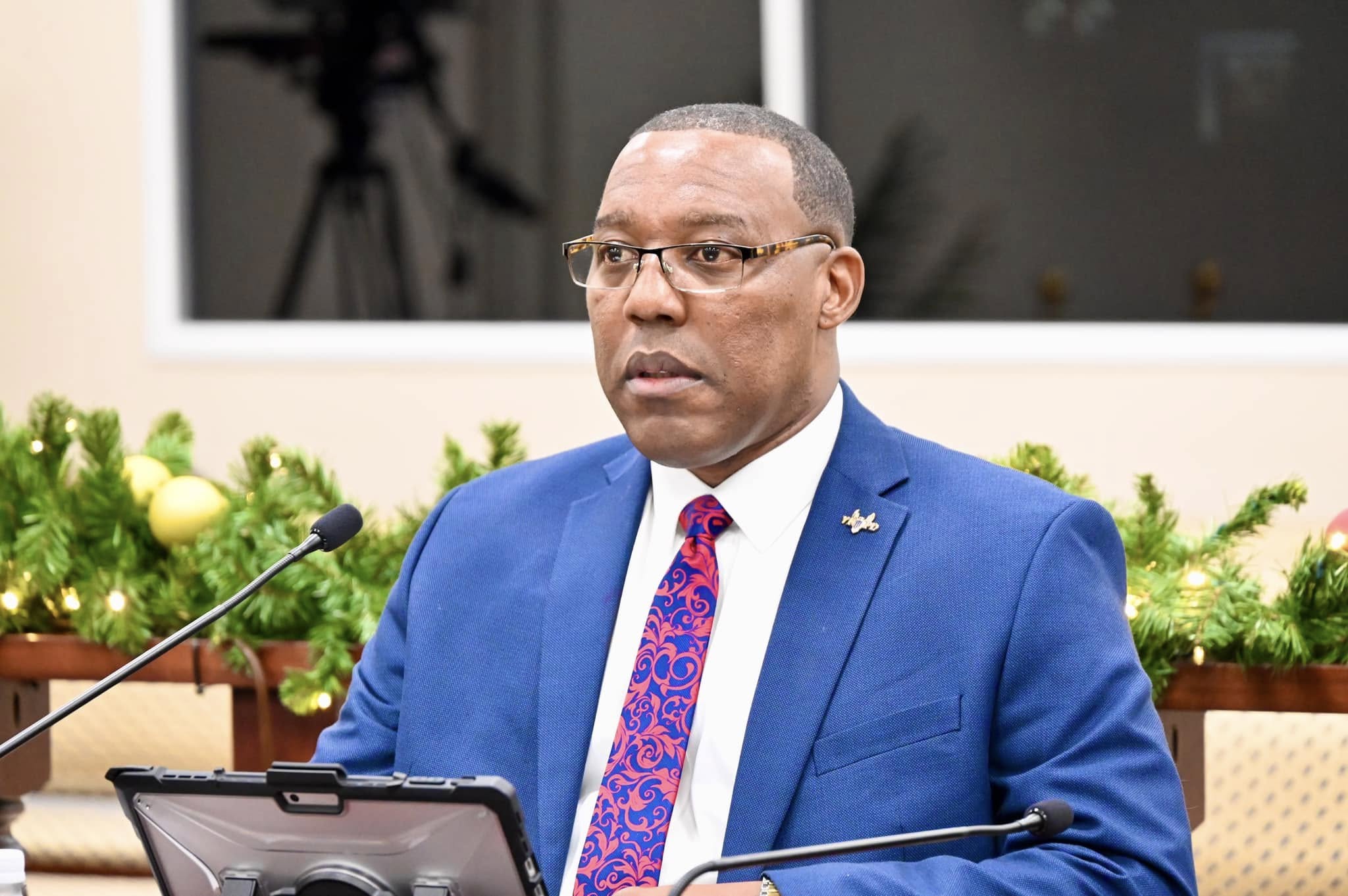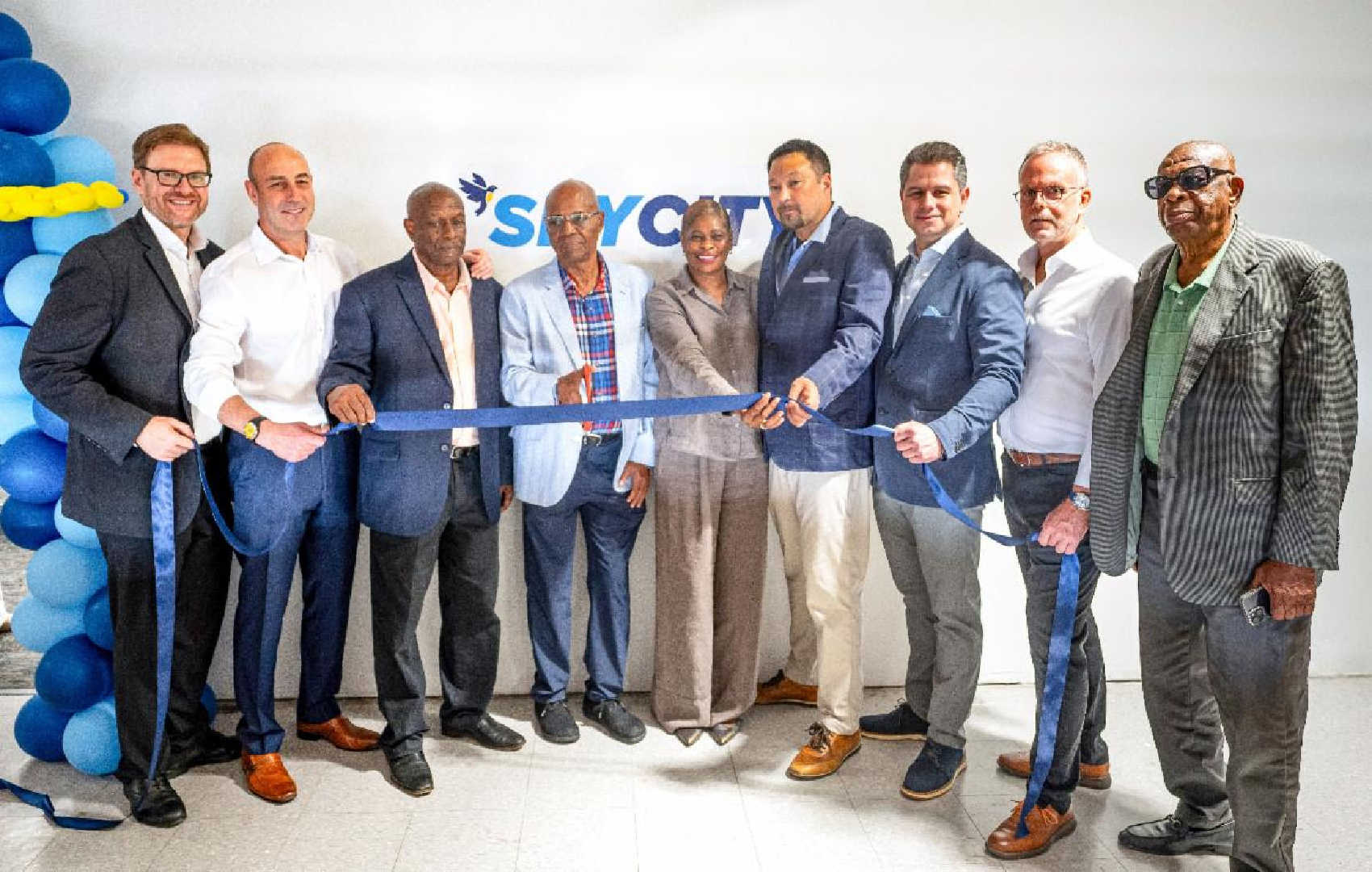

After Thursday's vetting by the Senate Committee on Rules and Judiciary, Mario Brooks looks poised to become the next commissioner of the Virgin Islands Police Department. With over thirty years of experience in local law enforcement, Mr. Brooks has acted in the role since Ray Martinez’s departure after being connected with a federal criminal investigation.
“My ultimate goal is to create a safer Virgin Islands for all,” Mr. Brooks told lawmakers. To do so, the career law enforcer has identified several priority areas which he suggests will place the VIPD on better footing, many of which were articulated by his predecessor during his confirmation hearing in 2021. Among them are concerted efforts to resolve three outstanding paragraphs in the consent decree currently binding the VIPD. The areas to be addressed are the use of force, timeliness, and patterns and trends. “It is our goal to achieve compliance with the remaining paragraphs, thereby clearing the department from the consent decree,” he said.
Mr. Brooks also discussed plans to “reduce our overtime expenditures by 30% by adjusting staffing levels to peak periods, implementing efficiency scheduling practices, [and] adjusting to flexible work arrangements.” Senator Angel Bolques Jr. was the first to question how realistic such a promise is. Throughout his testimony, and in response to lawmakers, Mr. Brooks referenced a need for accountability, explaining that any overtime must be well justified moving forward. Acknowledging that it is an “aggressive goal,” he affirmed that the VIPD will be able to cut down on overtime while simultaneously ensuring that adequate uniformed officers are deployed on the ground. Mr. Brooks said cost savings between 2023 and 2024 have already surpassed $2 million.
Having sufficient boots on the ground, however, requires having a well-staffed police department. Senator Marise James was one of many concerned by insufficient recruits within both the VIPD and Virgin Islands National Guard. “What's happening in our community where we're not attracting to two organizations that serve the public and protect the public?” she wondered.
“It is not a secret that police departments nationwide are critically understaffed,” said Mr. Brooks in his testimony. He outlined a “two-pronged approach” to remedy current human resource constraints. The first strategy, he said, involves major technological investments “to enhance real-time information sharing among officers.” With legislation to that effect already enacted, the VIPD is working to establish physical Real Time Crime Centers to assist in that regard. “I intend to utilize the technology to support our efforts when it comes to law enforcement,” Mr. Brooks assured lawmakers.
As the second part of the strategy, he intends to embark on a “more robust recruitment initiative” with a heavy emphasis on “community engagement.” This, according to Mr. Brooks, will “promote careers within the Department and utilize innovative advertising that improves our reputation.” Mr. Brooks agreed with lawmakers that the VIPD must urgently “revamp our recruiting process.”
Meanwhile, committee chair Senator Diane Capehart implored Mr. Brooks to make deliberate efforts to boost morale within the existing VIPD staff complement. The acting commissioner has rated morale at a five because “we do not have the conditions that [are] conducive to have raised morale.” He referenced derelict offices and lodging. “The officers need some place to work that will aid them in raising it,” he told Ms. Capehart. In his prepared testimony, Mr. Brooks told the committee that “the mental health of the Virgin Islands Police Department is of the utmost importance to me,” promising to provide “therapeutic interventions” for all VIPD personnel.
Thursday’s conversation eventually turned to plans for crime-fighting, with Senator Angel Bolques Jr. inquiring about strategic planning efforts. He learned from Mr. Brooks that the VIPD possesses “the tools in the territory that gives us the data that we need. We have an amazing analytics team…telling us where we need to focus our patrols and our preventative type initiatives. Last week, a former VIPD deputy commissioner appealed to the Department’s leadership to focus on data to craft crime-fighting plans.
Senator Milton Potter remarked on the need to improve enforcement, noting that “the key to deterring crime isn't so much severity of punishment, but it's more so certainty of being caught.” Mr. Brooks, in reply, promised to “improve our patrol, our investigative, our arrest procedures, so that we can affect more change.”
Ahead of the vote, which went largely in favor of Mr. Brooks’s appointment, several lawmakers took the opportunity to advise the law enforcement leader. “You're willing to step up to what I suspect is a very challenging and difficult job,” remarked Senator Carla Joseph. She encouraged him to focus on long-term strategic planning for the VIPD. Senator Novelle Francis Jr, a former police commissioner himself, encouraged Mr. Brooks to rely on previously conducted assessments and to hit the ground running with the information that is already available to the department.
“Personally, I think you would make a good commissioner,” declared Senator Ray Fonseca, while Senator Dwayne DeGraff, who previously trained Mr. Brooks, told him that “this is your time to shine. You have all the attributes.” Speaking additional words of encouragement, DeGraff said, “I know you could do it. I'm here to support you. This body is here to support you. The people of the territory [are] going to support you.”
Senator Franklin Johnson was the only committee member who was not convinced of Mr. Brooks’s fitness to serve. He voted no on the nomination following a lengthy discussion on surveillance cameras, traffic cameras, recruitment efforts, and combating gang activities.
Related News

VI National Guard Exits Federal Oversight After Six Years of Transformation

SkyCity Opens New Office at Cyril E. King Airport, Announces Local Community Investments

Lutheran Social Services Marks 120 Years of Serving the Virgin Islands Community

